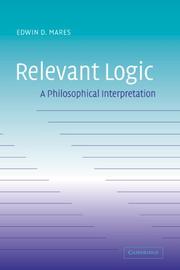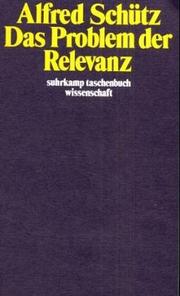| Listing 1 - 10 of 51 | << page >> |
Sort by
|
Book
ISBN: 1443891681 9781443891684 1443872806 9781443872805 Year: 2017 Publisher: Newcastle upon Tyne, England : Cambridge Scholars Publishing,
Abstract | Keywords | Export | Availability | Bookmark
 Loading...
Loading...Choose an application
- Reference Manager
- EndNote
- RefWorks (Direct export to RefWorks)
Relevance. --- Pertinence --- Relevancy --- Meaning (Philosophy) --- Meaning (Psychology)
Book
ISBN: 9783631819289 9783631819500 9783631819517 9783631819524 Year: 2020 Publisher: Berlin Peter Lang
Abstract | Keywords | Export | Availability | Bookmark
 Loading...
Loading...Choose an application
- Reference Manager
- EndNote
- RefWorks (Direct export to RefWorks)
La traduction juridique représente un risque pouvant déboucher à une critique. L'auteur en identifie les causes et examine les insuffisances du paradigme linguistique de la traduction. L'étude montre l'importance du rôle attribué à la notion de pertinence dans la traduction juridique qui est un mécanisme constitutif du sens. Il en résulte une approche contextualiste de la traduction dont le pivot est la pertinence. Dans cet ouvrage, on explore également les liens entre la pertinence, l'interprétation, l'usage et la qualité. La qualité d'une traduction se mesure dans sa pertinence. On y propose alors une méthode de la traduction associant pertinence et usage, faisant écho aux récentes recherches en langues de spécialité.
Droit --- Théorie de la pertinence (linguistique). --- Traduction. --- Law --- Translation science --- Théorie de la pertinence (linguistique)
Book
ISBN: 9781784057077 9781784067076 Year: 2020 Publisher: London ISTE Editions
Abstract | Keywords | Export | Availability | Bookmark
 Loading...
Loading...Choose an application
- Reference Manager
- EndNote
- RefWorks (Direct export to RefWorks)
"Parler une langue suppose d’être capable d’adapter très précisément ce que l’on dit à ce qui vient d’être dit. Participer à une conversation demande à la fois d’ajuster la pertinence de sa propre contribution à l’échange en cours et de comprendre comment ce que disent les autres prolonge ce qui a été dit jusque-là. Les questions sur la pertinence sont en lien étroit avec la question de savoir ce qui permet d’établir la cohérence et la cohésion des discours. De nombreuses disciplines se sont emparées de ces notions, que ce soit en (psycho)linguistique, en philosophie du langage, en logique, et plus généralement en sciences cognitives. Ce foisonnement scientifique et l’extension de ces notions rendent nécessaire une clarification de leur champ d’application. Cohérence, cohésion et pertinence vise à cartographier ces notions dans les travaux contemporains de philosophie du langage, de logique, de linguistique et de psycholinguistique."
Logic --- Grammar --- Pragmatics --- Cohérence (linguistique). --- Pertinence (logique). --- Théorie de la pertinence (linguistique). --- Discours (linguistique). --- Signification (linguistique).
Book
ISBN: 270731305X 9782707313058 Year: 1989 Publisher: Paris Minuit
Abstract | Keywords | Export | Availability | Bookmark
 Loading...
Loading...Choose an application
- Reference Manager
- EndNote
- RefWorks (Direct export to RefWorks)
Relevance (Philosophy) --- Pertinence (Logique) --- Inference (Logique) --- Pertinence (Philosophie) --- #KVHA:Taalkunde; Frans --- #KVHA:Communicatie; Frans --- Pragmatics --- Semiotics --- Communication --- Communication interpersonnelle --- Cognition --- Langage et langues --- Oral communication --- Relevance --- Inference --- Philosophie --- Psychological aspects --- Interpersonal communication --- Communication - Philosophie --- Langage et langues - Philosophie --- Oral communication - Psychological aspects --- CONTEXTE (LINGUISTIQUE) --- PERTINENCE --- COMMUNICATION INTERPERSONNELLE --- CONVERSATION --- INFORMATION, TRAITEMENT DE L' --- COMMUNICATION --- LINGUISTIQUE --- THEORIE DE LA PERTINENCE

ISBN: 0521829232 0521039258 051152000X 9780521829236 9780521039253 9780511520006 Year: 2003 Publisher: Cambridge Cambridge University press
Abstract | Keywords | Export | Availability | Bookmark
 Loading...
Loading...Choose an application
- Reference Manager
- EndNote
- RefWorks (Direct export to RefWorks)
This book introduces the reader to relevant logic and provides the subject with a philosophical interpretation. The defining feature of relevant logic is that it forces the premises of an argument to be really used ('relevant') in deriving its conclusion. The logic is placed in the context of possible world semantics and situation semantics, which are then applied to provide an understanding of the various logical particles (especially implication and negation) and natural language conditionals. The book ends by examining various applications of relevant logic and presenting some interesting open problems. It will be of interest to a range of readers including advanced students of logic, philosophical and mathematical logicians, and computer scientists.
Relevance logic. --- Relevance logic --- Relevant logic --- Logic --- Arts and Humanities --- Philosophy --- Pertinence (philosophie)

ISBN: 3518279718 Year: 1982 Publisher: Frankfurt am Main Suhrkamp
Abstract | Keywords | Export | Availability | Bookmark
 Loading...
Loading...Choose an application
- Reference Manager
- EndNote
- RefWorks (Direct export to RefWorks)
Logic --- Theory of knowledge --- 316.2 SCHUTZ, ALFRED --- #SBIB:316.21H60 --- Sociologische richtingen. Sociologische scholen. Sociologen--SCHUTZ, ALFRED --- Fenomenologische sociologie --- 316.2 SCHUTZ, ALFRED Sociologische richtingen. Sociologische scholen. Sociologen--SCHUTZ, ALFRED --- Théorie de la pertinence (linguistique) --- Pertinence (logique)
Multi
ISBN: 9780521747486 9780521766777 0521747481 052176677X 9781139028370 9781139336499 1139336495 9781139338233 1139338234 1139028375 1280393491 9781280393495 1139341391 9781139341394 1139334751 9781139334754 9786613571410 6613571415 1139339818 9781139339810 113933400X 113933736X Year: 2012 Publisher: Cambridge Cambridge university press
Abstract | Keywords | Export | Availability | Bookmark
 Loading...
Loading...Choose an application
- Reference Manager
- EndNote
- RefWorks (Direct export to RefWorks)
"When people speak, their words never fully encode what they mean, and the context is always compatible with a variety of interpretations. How can comprehension ever be achieved? Wilson and Sperber argue that comprehension is a process of inference guided by precise xpectations of relevance. What are the relations between the linguistically encoded meanings studied in semantics and the thoughts that humans are capable of entertaining and conveying? How should we analyse literal meaning, approximations, metaphors and ironies? Is the ability to understand speakers' meanings rooted in a more general human ability to understand other minds? How do these abilities interact in evolution and in cognitive development? Meaning and Relevance sets out to answer these and other questions, enriching and updating relevance theory and exploring its implications for linguistics, philosophy, cognitive science and literary studies"--
Lexicology. Semantics --- Psycholinguistics --- Semantics --- Relevance (Philosophy) --- Inference --- Cognition --- Sémantique --- Pertinence (Logique) --- Inférence (Logique) --- Semantics. --- Relevance. --- Inference. --- Cognition. --- 801.56 --- Syntaxis. Semantiek --- 801.56 Syntaxis. Semantiek --- Sémantique --- Inférence (Logique) --- Relevance --- Formal semantics --- Semasiology --- Semiology (Semantics) --- Comparative linguistics --- Information theory --- Language and languages --- Lexicology --- Meaning (Psychology) --- Pertinence --- Relevancy --- Meaning (Philosophy) --- Ampliative induction --- Induction, Ampliative --- Inference (Logic) --- Reasoning --- Psychology --- Arts and Humanities --- Language & Linguistics --- Inférence --- Théorie de la pertinence (linguistique) --- Inférence --- Théorie de la pertinence (linguistique)
Book
ISSN: 12425087 ISBN: 2130537588 9782130537588 Year: 2005 Publisher: Paris : Presses Universitaires de France,
Abstract | Keywords | Export | Availability | Bookmark
 Loading...
Loading...Choose an application
- Reference Manager
- EndNote
- RefWorks (Direct export to RefWorks)
La logique reste encore l'objet d'une fascination ambivalente pour de nombreux philosophes français. La logique est présentée de manière trop dogmatique, il faudrait avant tout la "situer", clarifier et évaluer les choix qui ont présidé à sa construction, identifier la pluralité des systèmes logiques d''aujourd'hui. Cet ouvrage se veut une introduction à la logique pertinente, en particulier au calcul propositionnel, il souhaite transmette et convaincre le lecteur que "la logique peut donner à penser".
Logic --- Logique --- Logic, symbolic and mathematical --- Relevance logic --- Relevant Logic --- Pertinence (philosophie) --- Philosophie de la logique --- Logic.
Book
ISBN: 0416820204 0416820107 9780416820102 9780416820201 Year: 1975 Publisher: London Methuen
Abstract | Keywords | Export | Availability | Bookmark
 Loading...
Loading...Choose an application
- Reference Manager
- EndNote
- RefWorks (Direct export to RefWorks)
Social psychology --- Relevance --- Mass psychology --- Psychology, Social --- Human ecology --- Psychology --- Social groups --- Sociology --- Pertinence --- Relevancy --- Meaning (Philosophy) --- Meaning (Psychology)
Book
ISBN: 9789027252838 9789027213730 9027213739 9027213739 9027252831 Year: 2023 Publisher: Amsterdam John Benjamins Publishing Company
Abstract | Keywords | Export | Availability | Bookmark
 Loading...
Loading...Choose an application
- Reference Manager
- EndNote
- RefWorks (Direct export to RefWorks)
"This book offers a fresh take on several long-standing issues relating to the (non-)truth-conditional interpretation of epistemic, evidential, hearsay and epistemic sentence adverbials. Drawing on a wealth of data from English and German, it shows for the first time that all four adverbial classes can have both truth-conditional and non-truth-conditional (parenthetical) readings. A novel account is presented according to which (non-)truth-conditional readings may arise at either the syntactic or the pragmatic level. Drawing on relevance theory, the book also re-examines the explicature and illocutionary status of the adverbial qualification and the qualified proposition, and refines the notions of pointhood and at-issueness to provide an original information-structural analysis applicable to not just sentence adverbials but a range of other propositional qualifiers. Finally, the investigation identifies five factors affecting (non-)truth-conditional interpretation: linear position, prosody, the semantics of the adverbial, its information-structural properties and the wider context. The book will be of interest to those interested in relevance theory, the semantics/pragmatics interface, the syntax/pragmatics interface and information structure, as well as for syntacticians, semanticists and pragmatists interested in sentence adverbials, other propositional qualifiers and parentheticality, syntactic and interpretational"--
Grammar, Comparative and general --- Relevance. --- Adverbials. --- Sentences. --- Conditionals --- Pertinence --- Relevancy --- Meaning (Philosophy) --- Meaning (Psychology) --- Linguistics --- Philology --- Grammar --- Relevance --- Adverbials --- Sentences
| Listing 1 - 10 of 51 | << page >> |
Sort by
|

 Search
Search Feedback
Feedback About UniCat
About UniCat  Help
Help News
News